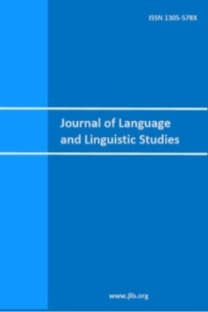Manana Rusieshvili-Cartledgea, Halis Gözpınarb
Proverbs; culture; children; equivalent; cross-language
Similar and unique in the family: How to raise children (Using examples of Turkish and Georgian proverbs relating to children)
___
Gormus, A., S & Aydın, S. (2008). Individualism as An Ascending Value in Turkey and A Research Conducted Among University Students, First International Conference On Management And Economics, Epoka University, Tiran.Gözpınar, H. (2011). Proverb- Its Semantic and Didactic Parametres. MA. Thesis. Tbilisi: Tbilisi State University
Gvardjaladze, I. (1976).Georgian proverbs with their English equivalents.Tbilisi: Izd-voMet︠s︡niereva
Levi-Strauss, C. (1968). Mythologiques III: L’Origine des manières de table.Paris: Plon
Rusieshvili, M. (2005). The proverb (in Georgian). Tbilisi: Lomisi.
Rusieshvili,M., &Lortkipanidze, K. (2010). Cultural similarities in proverbs (using Examples from Kartvelian and Azerbaijanian),International Conference “Current Advances in Caucasian Studies”, Macerata.
Taylor, A. (1962). The proverb.Pensylvania: Hatboro.
Tsuladze, L. (2006).IndividualistTrends in CollectivistSocieties.International Conference Women of theMountains, UtahValleyStateCollege (UVSC) , USA Retrievedon December 16 from: http://womenofthemountains.org/files/Microsoft%20Word%20-%2007-03-03-From-Tsuladze- Conference_paper.pdf
Yurtbasi, M.(1993). A dictionary of Turkish proverbs. Ankara: Turkish Daily News.
Ailede benzer ve tek: Çocuk eğitimi (Türk ve Gürcü çocuklar hakkındaki atasözleri)
- ISSN: 1305-578X
- Yayın Aralığı: Yılda 4 Sayı
- Yayıncı: Hacettepe Üniversitesi
Assessing ESL students' pronunciation in the Pakistani context
Türkçe yeşil renk adının biçim, anlam ve kavram alanına tarihsel bir bakış1
Seyyed Hatam Tamimi Sa’da *, Mohammad Mohammadib
Seyyed Hatam Tamimi Sa’d, Mohammad Mohammadi
Rodos’taki Türkçe-Yunanca ikidilli konuşucuların Türkçesinde Yunancanın etkisi
Mansoor Tavakoli a, Marzieh Nezakat-Alhossaini b
Mansoor Tavakoli, Marzieh Nezakat-Alhossaini
Gökhan Öztürk a*, Nurdan Gürbüz b
İsmail Çakır a *, Birtan Baytar b
